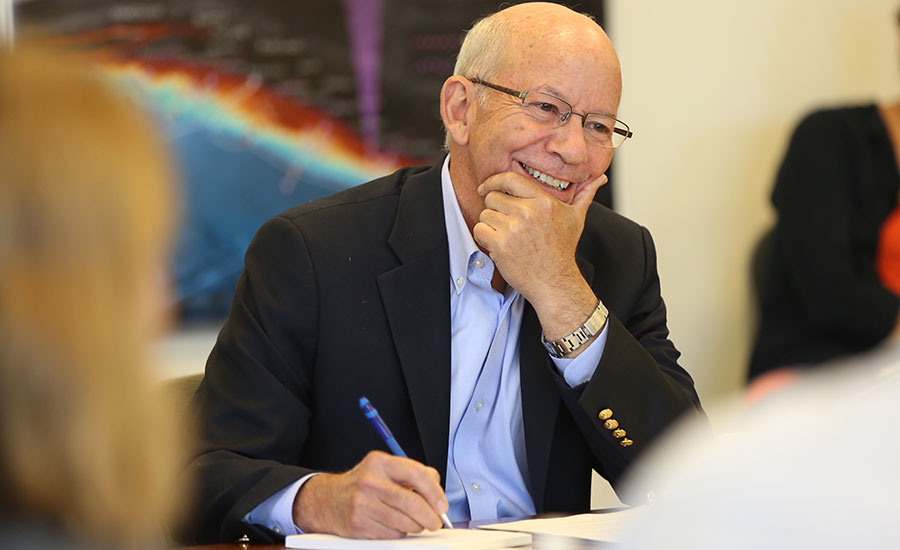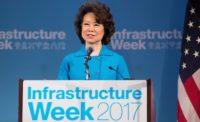Rep. Peter DeFazio (D-Ore.), who is expected to chair the Transportation and Infrastructure Committee when Democrats assume the House majority next year, has a goal: producing a major infrastructure bill providing $500 billion for highways and transit, plus additional funding for airports and water projects.
Democrats’ gains in the Nov. 6 elections have quickly revived talk about infrastructure legislation. President Trump and Senate Democrats both floated big infrastructure investment plans early this year but Congress didn't act on them.
But House Minority Leader Nancy Pelosi (D-Calif.), who is seeking to be the next House Speaker, has said she wants to pursue a significant infrastructure measure in the new Congress. President Trump has said infrastructure might be one area that both political parties can agree on.
As the head of the “T&I” committee, which has jurisdiction a wide range of types of infrastructure, DeFazio is likely to be a key player in such legislation.
“Infrastructure has been delayed too long,” DeFazio, a 31-year T&I member, told reporters in a Nov. 7 conference call. “We’ve got to get it done," he added. "We’ve got to maintain it. We’ve got to modernize it and we’ve got to move people and goods more efficiently.”
DeFazio said that infrastructure “is a place of potential common ground and agreement.” But he added, “The president is going to need to take a leadership role,” to convince Republicans to back a funding plan.
DeFazio wants to get an infrastructure package through the House in the first six months of 2019. But the key to advancing any major infrastructure measure is finding a way to pay for it that Congress can agree to.
DeFazio noted that it would be up to the Ways and Means Committee to come up with a revenue plan.
But in March 2017, he did introduce a plan of his own, the “Penny for Progress” bill, which would provide $500 billion for surface transportation over 13 years.
Under the proposal, the Treasury would raise the $500 billion by issuing a new type of 30-year bonds. They would be repaid by increasing the federal gasoline and diesel taxes to account for highway construction cost inflation and from lower fuel usage because of federal fuel-economy standards.
The bill hasn’t moved in the current Congress.
DeFazio isn’t wedded to the Penny for Progress approach. “I’m open to any and all options on how we get real funds for infrastructure,” he said. “But it has to be real money.” By "real money," he means direct federal revenue, not private-sector dollars, which were a major element of Trump's plan.
Beyond highways and transit, DeFazio has some other funding ideas. For airport infrastructure, he wants to increase the passenger facility charge, which has remained at $4.50 per flight segment since 2000, Airlines have opposed increasing the fee.
For Army Corps of Engineers harbor dredging, he wants to Congress to mandate spending the balance in the Harbor Maintenance Trust Fund.
Besides the envisioned infrastructure package, the T&I committee also will have to produce a surface transportation reauthorization bill by 2020. That's when the current statute, the 2015 Fixing America's Surface Transportation Act, is due to expire.



.jpg?height=200&t=1638555484&width=200)

